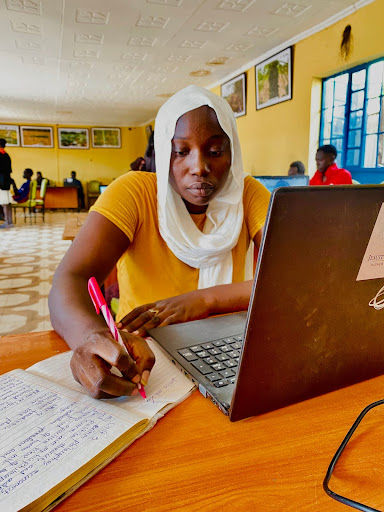RAI Fights for Kakuma Youth Empowerment, Despite COVID-19 Outbreak
- Aug 29, 2021
- 4 min read

Posted 9 September 2020
In 2010, an idea was born alongside a water tap at Kakuma refugee camp. Ultimately, through the hard work and dedication of its workers, this idea would grow to become the nonprofit Resilience Action International (RAI), formerly known as Solidarity and Advocacy with Vulnerable Individuals in Crisis (SAVIC) – a keystone of the Kakuma refugee community.
Kakuma refugee camp is home to a diverse family of people seeking refuge from danger, persecution, and hardship in their home countries. In 2010, many new arrivals came from Great Lake (Democratic Republic of Congo and Burundi), as well as other nations, and while the camp provided residents with a fresh start, the process of blending people from many different cultural backgrounds into a single community was not seamless.
According to RAI Programs Coordinator Soda Mangaiko, conflicts occurred most often at the water tap, a central meeting point for all regardless of their background. “In Kenya, people mostly speak English. In Congo, people speak Lingala, Swahili and French,” Soda explained. Language barriers were deemed the root of the misunderstandings and arguments among Kakuma residents.
Thankfully, RAI founder, Mr. Muzabel Welongo, and his peers had the foresight to seek out a creative solution for this intercultural dilemma. Soda recalls discussing the problem in 2010 with Mr. Muzabel Welongo and others. The predominant mentality was “We have to create something that will assist our fellow refugees. Not even just for us, but also people coming from Somali and Sudan.” Even in their own time of transition to life at Kakuma, this ambitious and compassionate team aimed to remedy this linguistically fueled conflict for both their own cultural groups as well as those that had arrived before and after them.
The resulting solution was the creation and registration of SAVIC.
SAVIC, started as a small community-based group, identified its first focus as the establishment of Communicative English classes, a direct effort to promote mutual understanding between the people of Kakuma. The group then broadened its focus to address another major problem facing its community—the high rate of teenage pregnancies that stemmed from the lack of reproductive education and resources. SAVIC established Adolescent Sexual and Reproductive Health trainings for the young women, and the program resulted in a decreased rate of teenage pregnancy. Soda credits this success in large part to teaching the women “how they could believe in creating their best futures and finding their true selves” by delaying pregnancy. This sexual education curriculum was delivered to students aged 14 to 18.
Despite achieving these two major successes, SAVIC’s leaders did not stop there.
Mr. Muzabel Welongo and his fellow SAVIC leaders realized that major benefits could be reaped if SAVIC pivoted from being registered as a small community-based group to a formal NGO structure. With that realization and a thoughtful rebranding project, Resilience Action International (RAI) was born.
The main mission of RAI is to enable refugee youth to live to their full potential by increasing access to education for productive livelihood opportunities and reproductive health services. “Overall,” Soda said, “The organization focuses on finding creative solutions to promote the social economic empowerment of youth in the most fragile of settings.”
While RAI has continued its legacy English education and reproductive health work, there is a new emphasis on promoting youth employment in Kakuma, as employment is a key driver of social economic empowerment in any community. Finding a job in the camp is difficult, even though there are many organizations that work to help employ refugee youth.
The job search process involves applying based on one’s work and education experience and attending an in-person interview. For most, it is the interview step that proves to be the largest obstacle, as it is typically conducted in English, but RAI offers its Communicative English and English for Career Success courses as a solution. “Most refugees that come from their country have their own education from their home country, but that language barrier is a key obstacle,” Soda explained, “That’s why RAI trains them in English. Once they combine their existing skills with English skills, they are likely to secure jobs and do well in the workforce.”
Again, RAI’s hard work toward its goal of securing youth employment in Kakuma has clearly proven effective. Some graduates of RAI’s career education courses have gone on to achieve economic success, with many starting their own thriving business and others going on to become teachers themselves. Few have also been fortunate enough to receive seed grants to make their goals of economic empowerment a reality.
Unfortunately, RAI was negatively impacted by the COVID-19 outbreak and is facing challenges that mirror those of other educational organizations around the globe. All in-person activities have ceased, but RAI’s team has implemented several innovative solutions to ensure its students are supported throughout this difficult time. “We have tried to do some online learning to continue the education,” Soda said, adding that the students’ final exams were also moved online.
According to Soda, moving to an online education model has proven quite difficult, as “many of the students do not have smartphones, and accessing online courses is difficult in refugee camps like Kakuma.” Despite having completed much of the in-person coursework, some students were forced to drop out when COVID-19 hit, as they simply could not continue to participate without smartphone access.
Fortunately, RAI has stopped at nothing to ensure its students are supported, and Soda and his passionate team are fighting tirelessly to seek out the increased donations needed to continue their service to youth in need. When asked how outsiders could help RAI work toward its admirable goal, Soda said, “It’s easy. It’s just a matter of visiting the website and donating.”
Please consider donating today at https://www.resilienceaction.net/donate to ensure that COVID-19 does not needlessly block Kakuma youth from reaching economic empowerment.
By Delaney Wehn



Comments